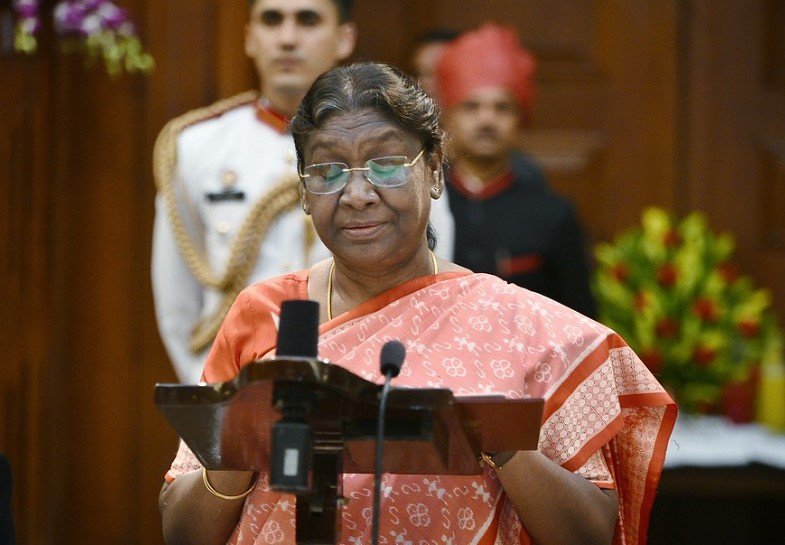Constitution Bench to first decide if Presidential reference is maintainable as political tensions simmer
India’s Supreme Court has locked in August 19 to begin hearings in a high-stakes case that could reshape how long Governors and the President can take to act on Bills passed by state legislatures. The move comes amid rising political heat over delayed assents, particularly in opposition-ruled states.
A Constitution Bench led by Chief Justice BR Gavai signaled the urgency and sensitivity of the issue, saying the question of “maintainability” — whether the presidential reference itself is valid for judicial review — will be examined first. Written submissions are due August 12, giving parties less than two weeks to prepare.
The Clock Is Ticking: All Eyes on August 19
The Bench, which includes Justices Surya Kant, Vikram Nath, PS Narasimha, and Atul S Chandurkar, was firm on timelines. It divided arguments into slots, separating those who support the reference from those who don’t.
The Court made it clear that arguments must wrap up within the assigned dates. This case isn’t just legal hair-splitting—it hits the very core of legislative process and federal power balance.

A Standoff Between the Centre and the States?
The battle lines are already drawn. The Central government is backing the reference, which came from President Droupadi Murmu. Opposition-ruled states like Kerala are pushing back hard, saying the matter doesn’t belong in the Court’s lap at all.
Senior Advocate KK Venugopal, representing Kerala, minced no words:
“There are grounds for it to be returned. We question the maintainability.”
Joining him was Kapil Sibal, another heavyweight from the opposition’s legal camp. He too challenged the admissibility of the reference itself.
And so, before even stepping into the meat of the matter—how long a Governor or the President can sit on a Bill—the Court has to decide whether it should wade in at all.
Who’s Who in the Legal Corner
The Court also finalized nodal counsels to streamline proceedings. Misha Rohatgi will lead the charge for those opposing the reference. On the Centre’s side, Solicitor General Tushar Mehta confirmed Aman Mehta as their standing counsel.
So far, here’s what we know about the key players:
| Legal Personality | Role | Representing |
|---|---|---|
| KK Venugopal | Senior Advocate | State of Kerala |
| Kapil Sibal | Senior Advocate | Opposing parties |
| Misha Rohatgi | Nodal Counsel | Opponents of reference |
| Tushar Mehta | Solicitor General | Central Government |
| Aman Mehta | Standing Counsel | Central Government |
Each one brings their own style, experience, and ideology to the bench. It’s not just a legal clash—it’s political too, whether anyone admits it or not.
Why This Matters More Than It Looks
This isn’t just courtroom drama. Delays by Governors in assenting to Bills have become flashpoints in states like Tamil Nadu, Kerala, and Punjab. Critics argue that some Governors, often appointed by the Centre, have been sitting on key legislation for months—sometimes years.
And that’s more than a technical delay. It affects everything from education policy to housing law.
• In Kerala, at least three Bills were delayed for over a year.
• In Tamil Nadu, a contentious Bill to ban online gambling was held back by the Governor for months before being returned.
• In Telangana (before the state election last year), the Governor returned several Bills, sparking a public face-off with the ruling party.
These delays aren’t trivial. They derail state governance, stall reforms, and cause massive political friction.
One-sentence paragraph.
Because this isn’t a side issue.
Constitutional Grey Zone or Political Smokescreen?
Supporters of the reference say clarity is long overdue. Article 200 of the Constitution, which outlines the Governor’s role in assenting to state Bills, doesn’t set a timeline. Critics argue that this loophole is now being exploited.
Some legal experts argue the Court should stay out of what’s essentially a political tug-of-war. Others say judicial clarity is necessary to avoid future deadlocks.
Then there’s the tricky part: the President’s role under Article 201, which allows her to either assent or withhold assent to a Bill reserved by the Governor. Here too, no time frame is mentioned.
That silence is now screaming for attention.
What Happens Next? Expect Fireworks
The initial days of the hearing will set the tone. If the Court finds the reference non-maintainable, the matter ends right there.
Then get ready for a deep legal fight—one that may decide whether India’s federal structure needs a bit more lubrication or a complete overhaul.
Some insiders believe the case could even result in guidelines similar to the Vishaka judgment on sexual harassment or the SR Bommai verdict on federalism. It’s that big.
Meanwhile, state governments, policy think tanks, and political parties are watching with bated breath. They know this isn’t just theory. This is power. Real, institutional power.
And right now, nobody’s quite sure who’s got the upper hand.
